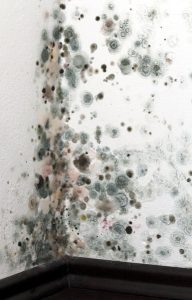One of the most common yet often overlooked issues homeowners can face when trying to keep cool during the summer is mold in their air conditioning units. In this post, we’ll address whether an AC can develop mold, the conditions that lead to mold growth, the negative effects of mold on your system, and how regular professional air conditioning maintenance in Perry, GA can help prevent these issues.
Can an Air Conditioner Develop Mold?
The short answer is yes. Mold thrives in environments that are dark, damp, and have a steady supply of organic material to feed on. Unfortunately, your air conditioning unit can provide these exact conditions, especially if it’s not properly maintained.
Conditions That Cause Mold Growth
Moisture Accumulation
Air conditioners naturally produce moisture as they cool the air in your home. This moisture is usually drained away through the condensate drain line. However, if there is any blockage or clog in the drain line, moisture can accumulate inside the unit.
Humidity
High humidity levels can significantly contribute to mold growth. If your AC unit is not effectively controlling indoor humidity, the excess moisture can create an ideal breeding ground for mold.
Dirt and Debris
Dirt, dust, and organic particles can accumulate inside your AC unit, especially on the evaporator coils and filters. These particles provide a food source for mold, encouraging its growth.
Poor Ventilation
Lack of proper airflow and ventilation can also lead to mold issues. When air cannot circulate effectively, it leaves damp areas within the unit where mold can thrive.
Negative Effects of Mold on Your Air Conditioner
Clogged Condensate Drain
One of the first issues you might encounter with mold in your AC is a clogged condensate drain. Mold and algae can build up in the drain line, causing blockages that prevent proper drainage. This can lead to water leakage and increased humidity in your home, further exacerbating mold growth.
Blocked Evaporator Coil
Mold can also grow on the evaporator coil, which is responsible for cooling the air. A mold-covered coil cannot function efficiently, leading to reduced cooling performance and increased energy consumption. In severe cases, the mold can cause the coil to freeze over, causing the unit to shut down.
Dirty Sock Syndrome
A telltale sign of mold in your AC unit is a musty odor often referred to as “dirty sock syndrome.” This unpleasant smell can permeate your entire home, making it uncomfortable and unhealthy to live in.
Health Risks
Mold spores can be circulated throughout your home via the air conditioning system, potentially causing respiratory issues, allergies, and other health problems for you and your family.
Preventing Mold in Your Air Conditioner
The best way to prevent mold in your air conditioning unit is through regular professional maintenance. Here at Premier HVAC, we recommend scheduling routine maintenance at least twice a year with our technicians. We’re committed to providing top-notch maintenance services to prevent mold and other issues in your air conditioning system. Contact us today to schedule your next maintenance visit and ensure your AC unit stays mold-free all year round.


